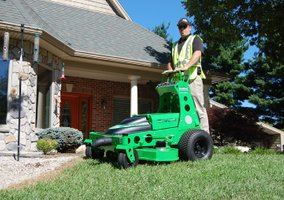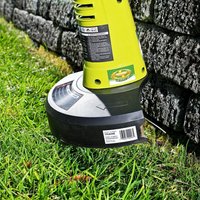Equipment
Landscaping Equipment As A Cause of Pollution
There are many serious environmental and health consequences related to gas-fueled landscaping equipment. Lawn care alone accounts for 10 percent of the air pollution in our country and is expected by 2020, to create more ozone pollution than all the passenger cars together in the USA.

Better Batteries
Thanks to advances in battery technology, cleaner, quieter and healthier alternatives to gas-based engines are available today, and are only getting better.The commercial electric equipment on the market today includes a full range of mowers, from push, self-propelled, stand up and ride on mowers to blowers, trimmers, hedge trimmers, edgers and chain saws. Lithium battery technology has improved to the point where it is now possible to get eight hours of operation on one charge for some professional mowers. The performance is comparable to gas. Less maintenance is required.
Reasons To Go Electric
Landscape maintenance companies have three good reasons to go electric: economics, environment and health. For single commercial-grade electric leaf blower, a busy contractor can expect a return on investment as early as 12 months. After that, the savings that come from eliminating gas and oil alone range from $800 to $1,600 per year. If you include maintenance costs, the savings become even greater. These savings are not only for the blowers and mowers, but other hand-held electric equipment as well. The immediate fuel savings can help finance the higher upfront cost of the equipment.. At the same time, going electric reduces fuel consumption and emissions, solid and toxic waste and reduces risks to worker health. By working with electric equipment, companies have an opportunity to differentiate themselves in an intensely competitive market that is trending more towards eco-friendly products and services.


A Growing Business
The era of electric landscape maintenance is in its infancy. It has a long way to go before it becomes mainstream. Moving from gas- to electric-powered equipment will require the industry to change the way it operates and this is where the challenge lies. As for other industries, technology adoption always starts slow with the early adopters. These will be properties and communities that place a premium on clean, quiet environments, like schools, hospitals, luxury properties, parks and municipalities. With increasing visibility and user experience, adoption of electric-powered equipment is expected to accelerate.
Education, training and certification will be essential to the adoption of electric technology. “It requires training and practice for workers to understand where electric works best and how to properly operate and maintain the equipment.
Where To Find Electric Equipment?
Under Construction
